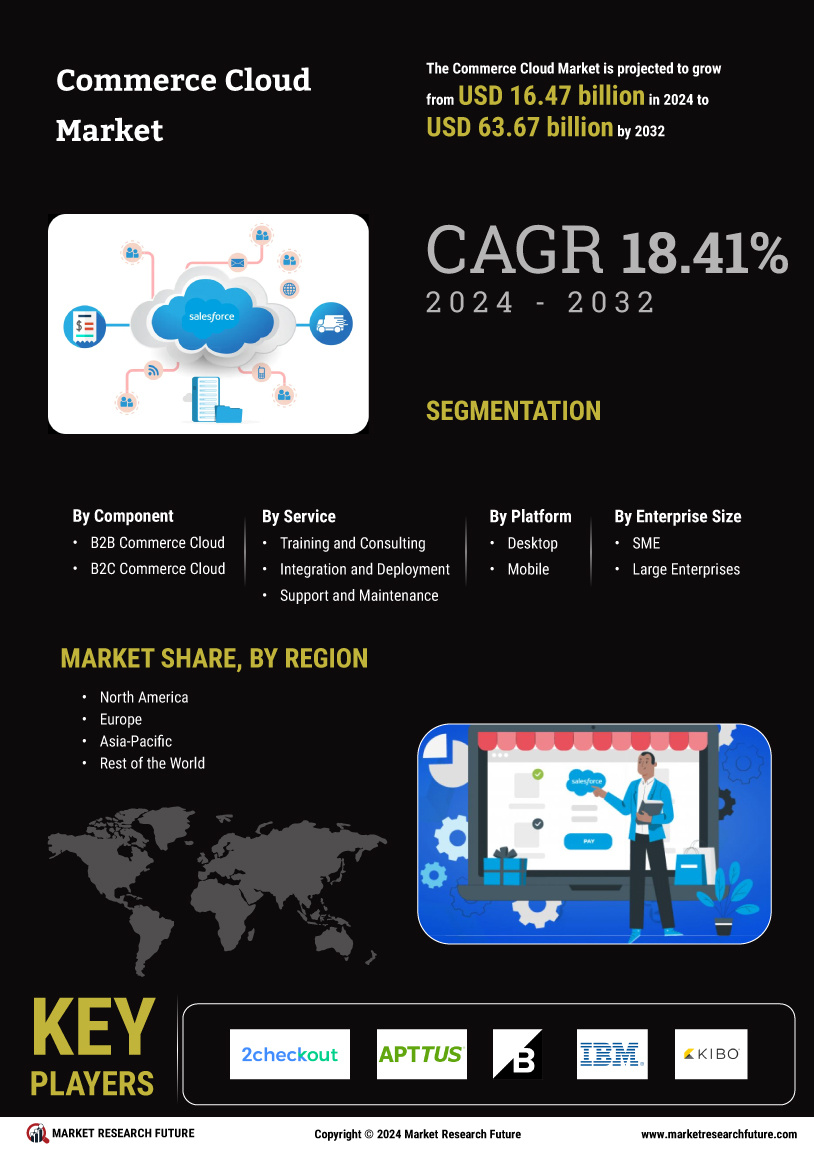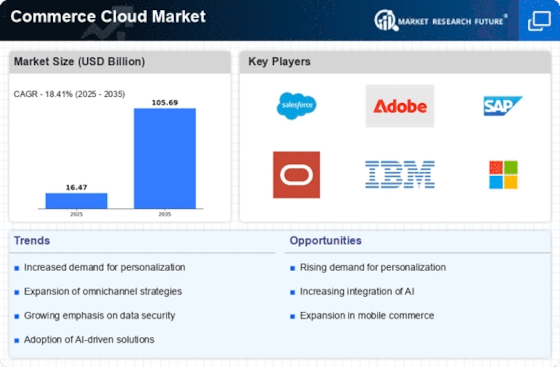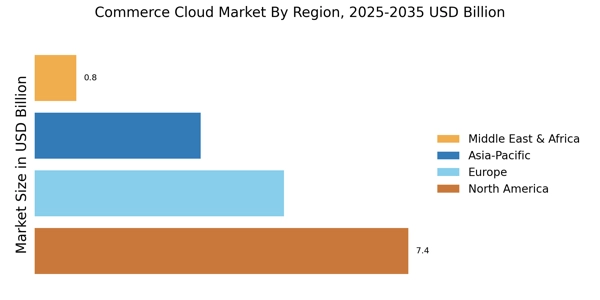Advancements in Data Analytics
Data analytics plays a pivotal role in shaping the Commerce Cloud Market, as businesses increasingly leverage data-driven insights to inform their strategies. The ability to analyze consumer behavior, preferences, and purchasing patterns enables companies to optimize their offerings and enhance customer experiences. As of October 2025, the market for data analytics in e-commerce is projected to reach significant figures, reflecting the growing importance of data in decision-making processes. By utilizing advanced analytics tools, businesses can identify trends, forecast demand, and personalize marketing efforts, thereby driving sales and customer loyalty. The integration of data analytics into commerce cloud solutions is likely to become a standard practice, further solidifying the relevance of the Commerce Cloud Market in the digital economy.
Focus on Enhanced Security Measures
In the Commerce Cloud Market, the focus on enhanced security measures is becoming increasingly critical as cyber threats continue to evolve. As of October 2025, the cost of data breaches is projected to reach alarming figures, prompting businesses to prioritize security in their e-commerce strategies. Companies are investing in advanced security protocols, including encryption, multi-factor authentication, and regular security audits, to protect sensitive customer information. This heightened emphasis on security not only safeguards businesses from potential threats but also builds consumer trust, which is essential for driving online sales. The Commerce Cloud Market is thus witnessing a growing demand for secure cloud solutions that address these concerns, ensuring that businesses can operate confidently in the digital landscape.
Emergence of Subscription-Based Models
The emergence of subscription-based models is transforming the Commerce Cloud Market, as businesses explore innovative revenue streams. This model allows companies to offer products and services on a recurring basis, fostering customer loyalty and predictable revenue. As of October 2025, subscription e-commerce is projected to account for a significant share of the overall e-commerce market, indicating a shift in consumer purchasing behavior. Businesses are increasingly adopting commerce cloud solutions that facilitate subscription management, billing, and customer engagement. This trend suggests that companies embracing subscription models are likely to enhance customer retention and drive long-term growth. The Commerce Cloud Market is thus adapting to this shift, providing tailored solutions that cater to the unique needs of subscription-based businesses.
Rising Demand for E-commerce Solutions
The Commerce Cloud Market experiences a notable surge in demand for e-commerce solutions, driven by the increasing number of businesses transitioning to online platforms. As of October 2025, it is estimated that e-commerce sales account for approximately 20% of total retail sales, indicating a robust growth trajectory. This shift is largely attributed to changing consumer preferences, where convenience and accessibility are paramount. Businesses are increasingly seeking cloud-based solutions to enhance their online presence, streamline operations, and improve customer engagement. The Commerce Cloud Market is thus witnessing a proliferation of platforms that offer scalable and flexible solutions tailored to diverse business needs. This trend suggests that companies investing in e-commerce capabilities are likely to gain a competitive edge, further propelling the growth of the Commerce Cloud Market.
Increased Investment in Cloud Infrastructure
The Commerce Cloud Market is witnessing a substantial increase in investment in cloud infrastructure, as organizations recognize the benefits of scalable and secure solutions. As of October 2025, cloud spending is projected to grow at a compound annual growth rate of over 20%, reflecting the shift towards cloud-based services. This investment is driven by the need for businesses to enhance operational efficiency, reduce costs, and improve agility in responding to market changes. Companies are increasingly adopting cloud solutions to support their e-commerce operations, enabling them to manage inventory, process transactions, and analyze customer data seamlessly. The growing reliance on cloud infrastructure is likely to bolster the Commerce Cloud Market, as businesses seek to leverage technology for competitive advantage.

















